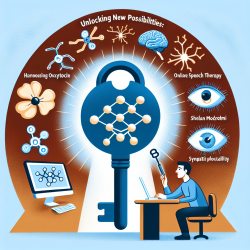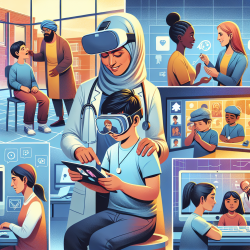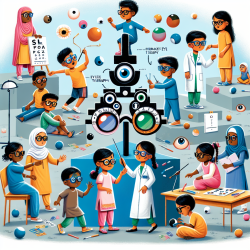In the evolving landscape of mental health services, online therapy has emerged as a crucial tool, particularly in remote and rural areas. A recent study titled "Online art therapy pilot in the Western Isles of Scotland: a feasibility and acceptability study of a novel service in a rural community" sheds light on the potential of online art therapy to enhance psychological well-being in such settings. Here, we distill key findings and recommendations from this study to help practitioners improve their skills and encourage further research.
Key Findings
The study conducted a pilot online art therapy service for adults in the Western Isles of Scotland, aiming to assess its feasibility and acceptability. The service was found to be not only feasible but also highly impactful. Here are some key takeaways:
- Client Experience: Participants described the online art therapy sessions as a judgment-free zone that allowed freedom to experiment, express, and immerse themselves in the creative process. This led to increased emotional acceptance, better self-understanding, and new perspectives.
- Service Setup: Effective coordination and adequate preparation time were crucial for the successful implementation of the service. Regular stakeholder meetings and clear guidelines on roles and responsibilities were essential.
- Technology: Reliable digital technology, including high-quality internet connections and appropriate digital art tools, was vital. Clients appreciated the use of iPads and the Procreate app for digital art-making.
- Therapeutic Relationship: The study found that the therapeutic process could develop successfully online, sometimes even more intensely than in face-to-face settings. The flexibility of online sessions allowed for more adaptive and client-centered approaches.
Recommendations for Practitioners
Based on the study's findings, here are some actionable recommendations for practitioners:
- Preparation and Coordination: Allocate sufficient time for setting up the service, including technology setup and familiarization. Regular meetings among stakeholders can help resolve issues early and ensure smooth operation.
- Client Support: Provide comprehensive support for clients in using digital tools and platforms. Consider offering training sessions for both clients and therapists to enhance their comfort and confidence with the technology.
- Flexible Approaches: Adapt the therapeutic process to the unique opportunities presented by online settings. This may include offering options for clients to use their own devices and digital art tools.
- Further Research: Encourage further studies to explore the therapeutic mechanisms and client experiences in online art therapy. Mixed-method approaches can provide deeper insights into the benefits and challenges of online delivery.
Conclusion
The pilot study in the Western Isles of Scotland highlights the promising potential of online art therapy in rural settings. By leveraging digital tools and adopting flexible, client-centered approaches, practitioners can enhance the accessibility and effectiveness of mental health services. As we continue to navigate the evolving landscape of online therapy, further research and collaboration will be essential in refining these services and maximizing their impact.
To read the original research paper, please follow this link: Online art therapy pilot in the Western Isles of Scotland: a feasibility and acceptability study of a novel service in a rural community.










